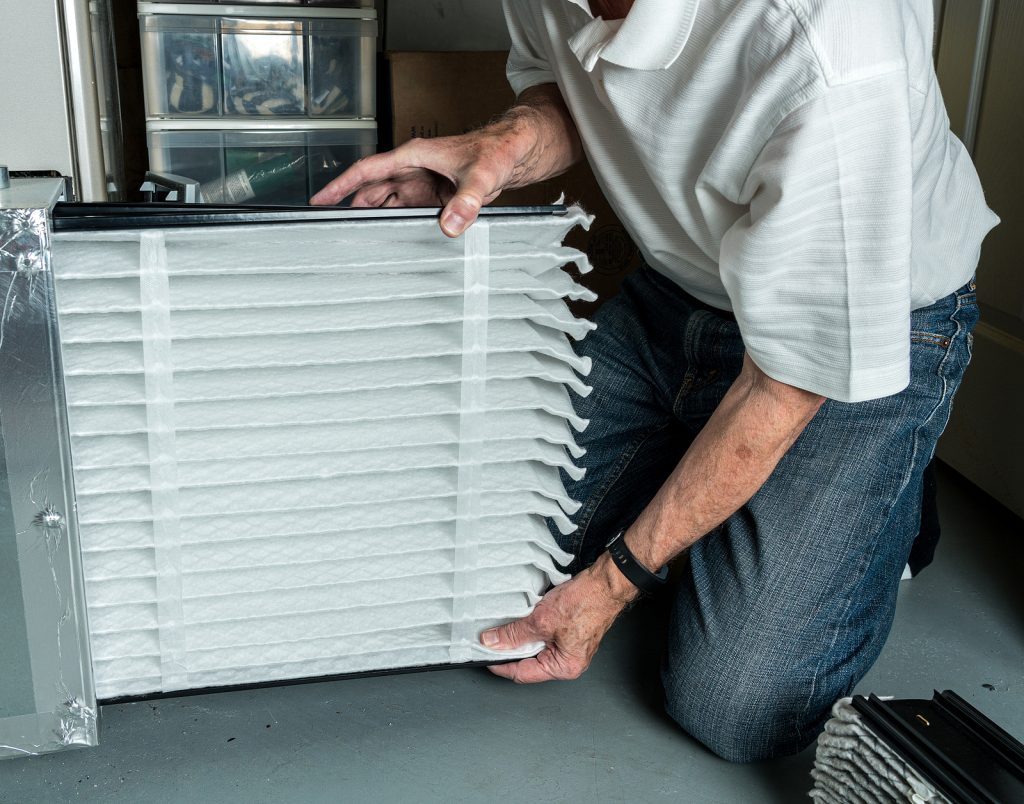New Furnace Checklist – 9 Important Factors to Consider
If you’re in the market for a new home furnace, the buying can process can seem overwhelming at first. There are many options to choose from, and not all homeowners understand the technical specifications or what to look for.

That’s why at Robert B. Payne, Inc., we’ve put together a convenient check-list to help make the process easier. When buying a new furnace, there are many factors to consider, including fuel source, size, blower motor speeds, budget, warranty, energy-efficiency, and more.
New furnace buying checklist
- Fuel source – In most cases, you’ll want your new furnace to use the same fuel source as your current model. However, if you prefer to make a change, you have a few choices, including natural gas, electricity, and oil. Each fuel type has its own pros and cons, so it’s a good idea to consult with an HVAC professional to determine the ideal one for your needs.
- Size – A new furnace needs to be appropriately sized for your home. If the unit is too small, it will have a hard time heating your home during cold winter days. And if the unit is too large, it won’t operate as efficiently. Sizing is loosely based on the square footage of your home, but an HVAC technician can do a more accurate calculation using the standard Manual J HVAC Residential Load Calculation.
- Fixed speed or variable speed blower – A single-speed blower is a more affordable option but only operates at one setting, meaning the blower is either off or blowing at full force. On the other hand, a variable-speed blower can adjust its speed based on how much warm air is needed, which allows it to provide more consistent heating and operate at a quieter volume.
- Zoning – Zoned heating allows the system to provide different amounts of heat to different rooms. Each zone also gets its own thermostat or setting. Going with a zoned heating approach is an excellent way to make everyone in your household comfortable and save money by not heating infrequently used rooms.
- Budget – Today’s furnaces can come with plenty of advanced features and bells-and-whistles, but they come at a cost. Depending on your budget, you can still get a high-quality furnace at a lower price range.
- Warranty – Since a furnace is a long-term investment in your home, it’s nice to have the protection of a warranty. Each manufacturer and model have different warranty terms that cover certain components, so look at the warranty details carefully or talk to your HVAC professional.
- Energy-efficiency – The more energy-efficiency your new furnace is, the lower your utility bills will likely be. Furnace efficiency is often measured by its annual fuel utilization efficiency (AFUE). As you compare furnace models, you will find AFUEs can range from 80% to over 95%.
- Air filter – There are several sizes of air filter compartments, ranging from 1-inch to 4-inches thick. If you are concerned with indoor air quality due to allergies or respiratory issues, you may want to look for a higher-grade filter that catches smaller airborne particles.
- Installer experience – To get the best performance and longest service life out of your new furnace, you should have it installed by a licensed HVAC professional. Make sure your research an installer’s experience and reviews before investing in a new furnace.
Schedule a new furnace consultation
Hopefully, this checklist is helpful as you shop around for new furnaces. Of course, this is just the tip of the iceberg, and there are many other factors to consider before making your final choice. If you have any questions or want to get a professional opinion, contact Robert B. Payne, Inc. for a furnace consultation. To schedule an appointment in the Fredericksburg, VA, area, call 540-373-5876.

